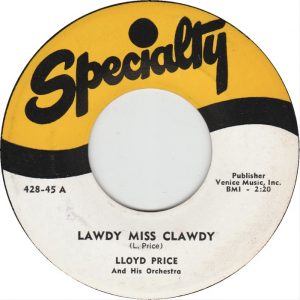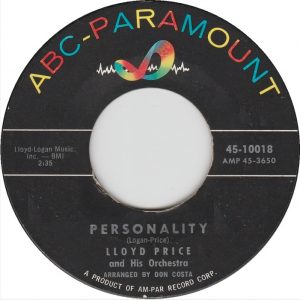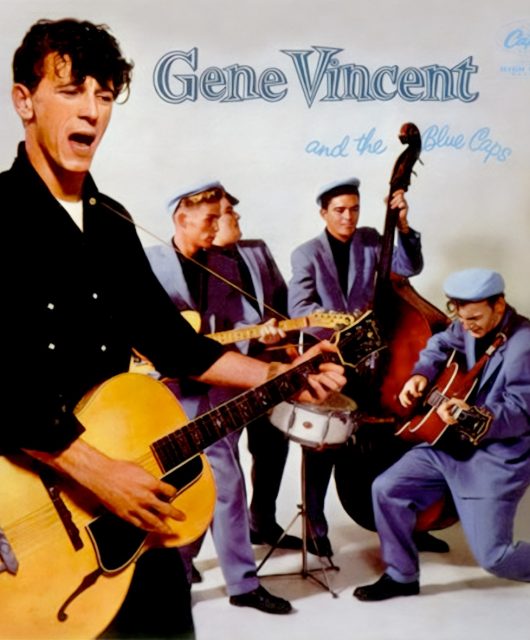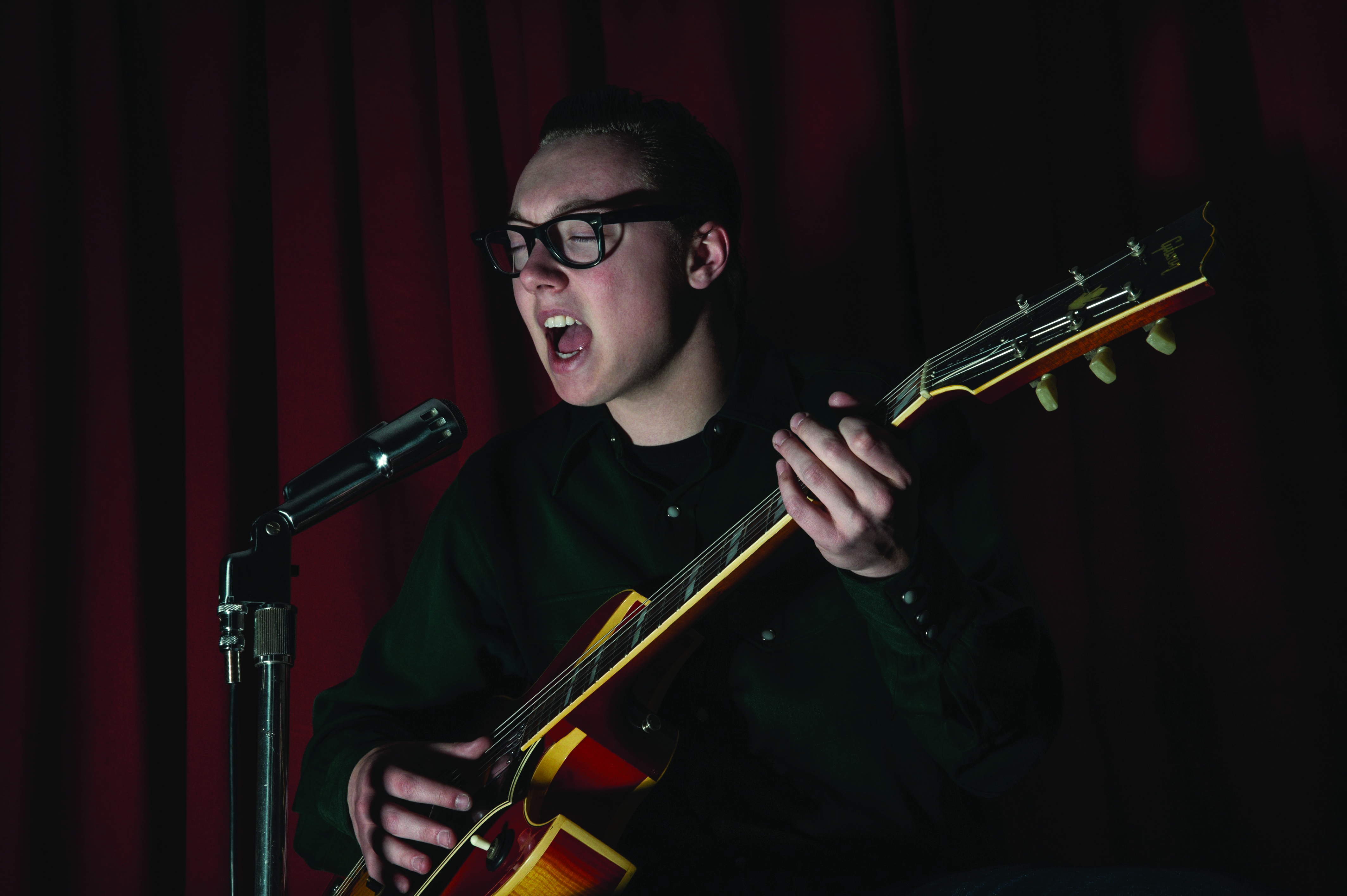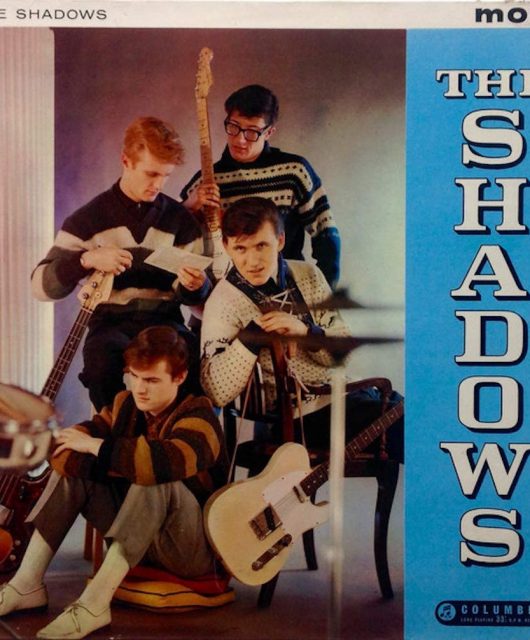Lloyd Price may never have been accorded the status of a true great, but his Lawdy Miss Clawdy was one of the cornerstone songs of rock’n’roll. Later dubbed ‘Mr Personality’ after his cross-Atlantic hit song of 1959, his back catalogue is well worth a listen…
Words by Jack Watkins
When Lloyd Price departed for the great rock’n’roll mansion in the sky at the age of 88 in the spring of 2021, we lost a survivor from the very earliest days of the music, who had managed to stay in the game, in one way or another, pretty much to the end.
The Louisiana-born singer had cut his teeth on R&B of the more searing, hardcore kind in the late 40s, before developing a fuller, mellower sound better suited to the crossover market. His Lawdy Miss Clawdy became a kind of rock anthem, even if a lot of people soon forgot he’d done the original. He recorded rock-lite novelties like Personality while retaining a forceful vocal credibility.
As fashions changed in the 60s and 70s so did he, dabbling in drop-dead classy, jazzy reworkings of standards like Misty and dipping into soul, sometimes at the lusher end of the market.
Mr Personality
A shrewd businessman, in his mature years he recognised there was a new market to be exploited on the oldies and rock’n’roll revival circuits. Aged 82, he managed to extract more print column inches from an autobiography, uncompromisingly called sumdumhonky.
Having written more about his career in 2009’s Lawdy Miss Clawdy: The True King Of The 50s: The Lloyd Price Story, this had a firm focus on racism encountered throughout his career both inside and outside of the music industry from people who’d exploited him because he was a Black man from the Southern states. Times had changed since his earliest days, he admitted wryly.
Alongside being able eat at the same restaurant as white people and being able to get a bank loan, “We don’t get lynched quite as often as we used to.”
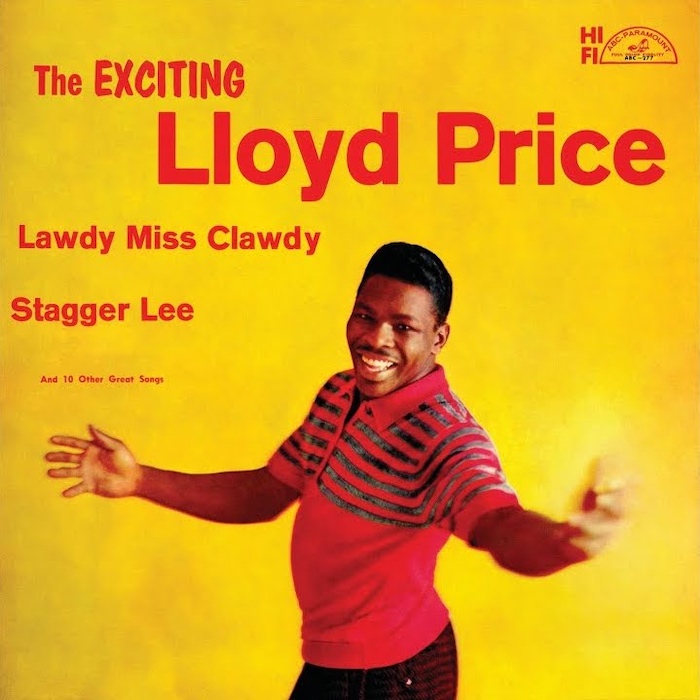
Cooking Up A Classic
Born in 1933, Price was performing in a jazz/R&B combo in New Orleans while still in high school. But it was while helping out in his mother’s fish café on the edge of town, where he danced to songs on the jukebox to entertain customers that he gained the inspiration for his most famous song.
Working in the kitchen, he listened to New Orleans deejay ‘Okey Dokey’ Smith on WBOK, enjoying the catchphrase he used to plug a brand of coffee: “Have a good cup of that Maxwell House Coffee, eat your mother’s homemade pies… ha ha ha!! Lawdy, Miss Clawdy!!” Price had just split up with his girlfriend.
Accompanying himself on the piano, he wrote a song about it, using Smith’s catchphrase. He thought little more of it, but Dave Bartholomew, already a local big-shot bandleader and established in the recording business, walked in and caught a few bars of the song.
Southernfried Star
He was impressed enough to bring the teenager and his song to the attention of Art Rupe, boss of Specialty. That label was based in Hollywood, but Rupe was on a visit to the Crescent City in search of his own southernfried answer to young Fats Domino, currently enjoying success on Los Angeles rival Lew Chudd’s Imperial.
Price was summoned to Cosimo Matassa’s J&M studio in downtown New Orleans for a first session in early 1952. It just so happened that Domino himself was in the studio that day and played on the session, along with Bartholomew (who produced Domino’s Imperial sessions).
New Orleans sidemen on the session included Earl Palmer (drums), Ernest McLean (guitar), Frank Fields (bass), and Joe Harris and Herb Hardesty on alto and tenor sax respectively. Still wet behind the ears, Price later recalled in interviews that when Domino asked him what key the song was in he didn’t know what he meant and his mind switched to the keys in his pockets. After he’d sung a few lines, and Bartholomew told him it was in A flat, Domino introduced the number with one of his unmistakable piano intros, and off they rolled into history.
Lawdy Miss Clawdy
Lawdy Miss Clawdy hit the top of the R&B charts in summer 1952 and sold over a million. It became the No.1 R&B Record Of The Year in Billboard and Cash Box. It was one of the first ‘race records’ to crossover, Rupe frequently telling the story of how “white women went into shops to buy it, giving the excuse that they were doing so for their coloured maids.” Follow-up hits for Price on Specialty such as Oooh-Oooh-Oooh and Ain’t It A Shame were in the tripletty piano and sax style favoured by Domino, though Price’s singing was more intense.
Career progress stalled in 1954 when Price was drafted into the US Army, a major blow not only to the man himself, but to Rupe, selling more records by Price than anyone on his roster at this time. By way of compensation, Price would later say that he pushed Little Richard in Rupe’s direction after he saw him while doing a show in Macon, Georgia.
Sophisticated Style
Price recalled that, having seen him with his high pompadour, a light green suit, yellow shirt, red tie and white and green shoes, jump on stage in the interval, banging away on his piano and singing without a mic, he urged him to send a demo to Specialty A&R, ‘Bumps’ Blackwell.
Unfortunately, when Price reemerged from service, the likes of Little Richard had made Price’s earlier wailing style sound dated. He, at least, was nothing if not adaptable. Back in Matassa’s studio in 1956, Rock’n’Roll Dance had a knockout beat up with the best and some great sax from Alvin ‘Red’ Tyler, for instance.
But the stylish Price didn’t quite have Little Richard’s pipes. Disillusioned at the way Rupe now seemed to be putting all his resources into the Georgia Peach’s records and neglecting his own, he left Specialty to form his own record company KRC in Washington in 1957.
Just Because
He had an immediate hit with one of his own compositions, the plaintive proto-soul number Just Because, leasing the song to ABC to take advantage of their bigger distribution muscle. Added satisfaction lay in the way the disc saw off competition from his former pianist-valet Larry Williams, after the latter recorded a cover for Specialty entirely devoid of the soulful clout of Price’s original.
That Price had a fine soul voice is obvious in songs like Down By The River, another of his outstanding originals no fan of his singing should miss. Yet it was only when he completely threw in his lot with ABC and started aiming his material squarely at the pop market that he really hit his commercial stride. Stagger Lee, an adaptation of a folk song, was not drastically different from the expected Price style, but was filled out by a female backing chorus repeatedly calling “Go, Stagger Lee! Go Stagger Lee!” It was No.1 in the Billboard charts for four weeks.
On subsequent recordings, Price embraced brassy orchestral backings and heavenly choruses. In this use of an extended band and vocal personnel, Price reckoned he was a pioneer, adopting the strategy before the likes of James Brown and Ray Charles. It paid off with Where Were You (On Our Wedding Day), Personality, I’m Gonna Get Married, Come Into My Heart, Lady Luck and Question, all making the Top 20 (Personality and I’m Gonna Get Married made No.2 and No.3 in the US respectively). During 1959, Price enjoyed a near-similar level of success in the UK, via Stagger Lee (No.7), Where Were You (On Our Wedding Day) (No.15), Personality (No.9), and I’m Gonna Get Married (No.23).
Further Rumblings
In the 60s, he turned to more sophisticated material. A butch, swinging version of Erroll Garner’s Misty nearly returned him to the US Top 20. Billie Baby, his craggily soulful reworking on the standard Bill Bailey, aided by a sock-it-to-’em arrangement, put the versions of many a more recognised supper club singer of the day to shame.
That was it just about for Price as a significant recording artist. There followed numerous business ventures, from running a New York nightclub to his partnership with Don King in promoting some of the great mid-70s heavyweight boxing contests, including the ‘Rumble In The Jungle’ between Muhammed Ali and George Foreman in Zaire and the ‘Thrilla in Manila’ between Ali and Joe Frazier. While he performed and recorded sporadically, another of his label start-ups with long-term business partner Harold Logan, Double-L, released Wilson Pickett’s first solo singles to chart, If You Need Me, It’s Too Late and I’m Down To My Last Heartbreak, after he’d left The Falcons.
From 2022 to 2023, Price was the subject of the well-received Personality: The Lloyd Price Musical, with Saint Aubyn superbly assuming the voice of the star on stage. Had he lived, that might have touched Price more than all the inductions into various halls of fame he’d received over the years.
For further information click here
Sign up to the Vintage Rock Newsletter


